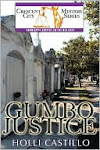ENDINGS
In the last few weeks, I’ve read several novels that were thoroughly enjoyable– until I got to the endings.
The novels were well-written. Each one started off with a bang, did a great job of introducing the characters, had an appropriate amount of back story and description, and flowed well. The plots were compelling, the characters drew me in, and I was all set for a great, satisfying ending.
And then the unthinkable happened. The endings were poorly constructed. In the first of four such novels, the ending itself was adequate, but the story just, well, ended. There was no closure. The protagonist solved the mystery in one sentence, explained what he would do with the information as to who the killer was in a short paragraph, and that was it. Although the mystery was solved, the ending fell completely flat.
In the other three works, the endings weren’t even adequate. The mystery was solved, but I had a “so what” feeling after I finished.
When a mystery is solved, many novels have that Scooby-Doo moment where the guilty party has to explain a few things, maybe why he did it or how he did it. Sometimes, it’s unavoidable, and if done well, it doesn’t stick out. It gives the reader that a-ha moment, where everything suddenly fits in together– all those clues, all that foreshadowing, remembering back to those few pages where the killer was alone with the protagonist and getting the subtext of the conversation, realizing his words had a completely different meaning. Getting that final chill, what my 11-year-old daughter calls, “the feels.”
When it’s not done well, however, instead of the chills, that moment of explanation seems like a lazy way of passing the information on to the reader. One of the books I read did not do this well, and it felt like an info dump. I think it was most surprising because the rest of the book was well-written. The villain went on for pages upon pages explaining the why, the how, the when, and by then I didn’t care any more. I just wanted the book to end.
The next of the disappointing, inadequate endings just didn’t make sense. I completely didn’t believe the person whodunnit actually dunnit. It was one of those came-out-of-left-field killers, with little in the novel to hint to his identity and even less to let me believe he could do it. The writer offered no clue that this individual could possibly have had the skills necessary to pull off the murder, and I did not buy him as the killer.
In the last of these books with poorly written endings, the exact opposite occurred--the killer was exactly who everyone thought the killer was going to be, including the protagonist. The book was compelling up until then, because I just knew at the last minute, the killer was going to be revealed as someone else. Only he wasn’t. There were other suspects, but the this one was so obvious and so suspicious I knew one of the less obvious suspects had to be the bad guy. When he wasn’t, the whole book seemed silly. It’s not really a mystery if everyone knows who did it.
Which begs the question of whether the books were any good at all. While that is a totally subjective question, I have to say it’s difficult for me to answer. Up until the blown endings, I would have given these books 7s or 8s on a 1-10 scale. After the endings, I had to rethink my enjoyment level. Is a book still enjoyable if 92 percent of is pretty good, and then the last 8 percent sucks? Resolutions are so important, especially if the writer wants the reader to read the next book he or she writes. But on the other hand, up until those last few pages, I had enjoyed the journey. Is the destination just as important as the trip itself?
I guess the real question is whether I’ll take a chance and buy another book by these writers. I’m thinking I’ll read the reviews before I do, and if any of my criticisms are repeated by other readers, I’ll probably take a pass. Life is too short to be disappointed by bad endings.
Sunday, September 22, 2013
Subscribe to:
Comments (Atom)








